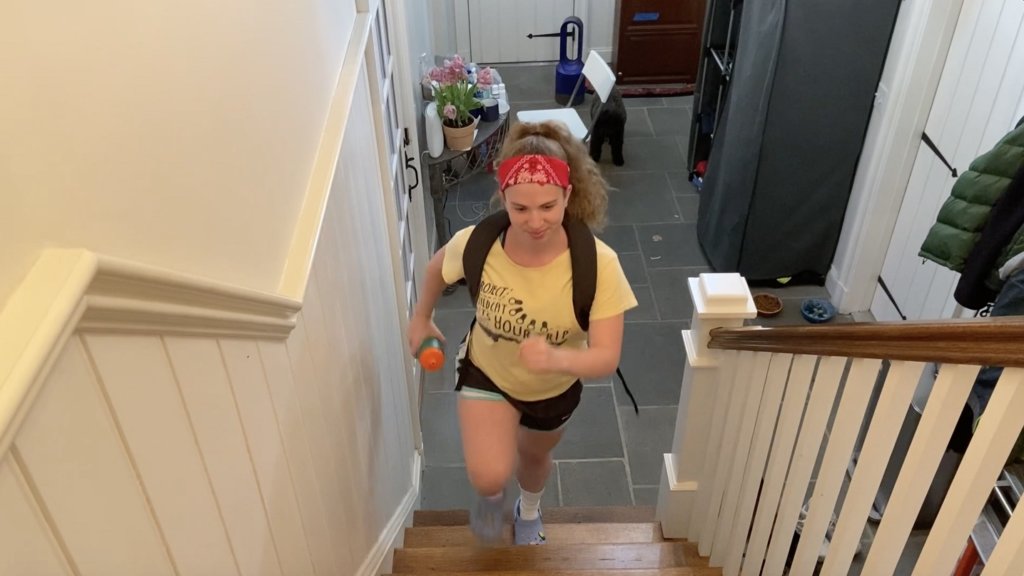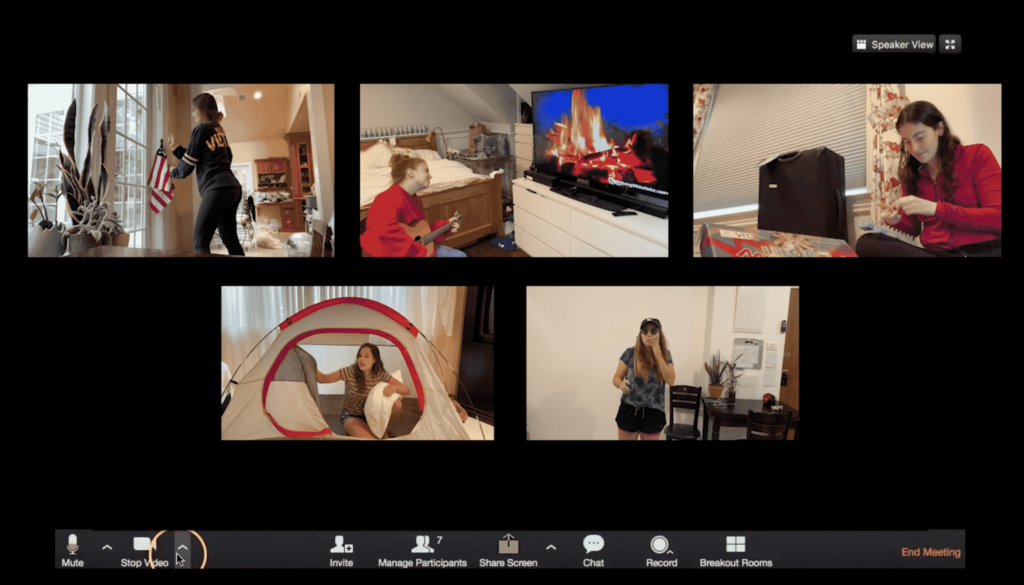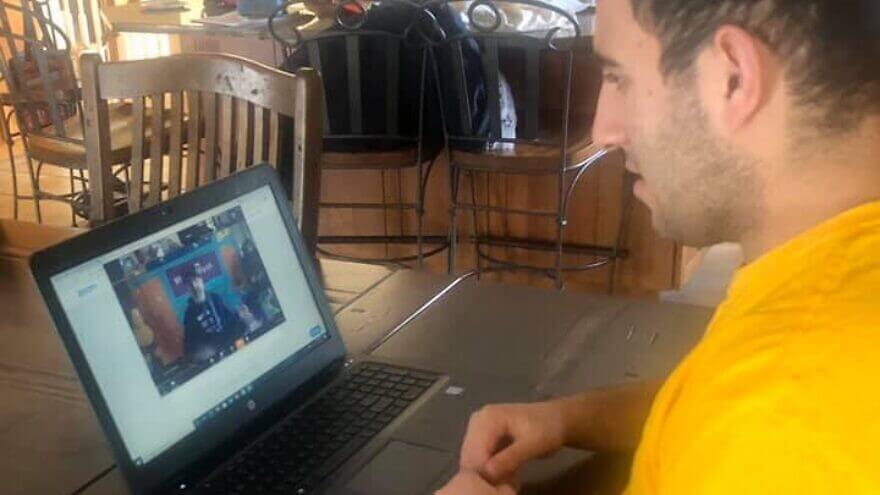The American Camping Association (ACA), which employs more than 320,000 camp staff and serves over 7.2 million children in its 2,400 ACA accredited camps report in a 2017 study that 44% of camps offer specialized programs for individuals with disabilities. They proudly note, “For 120 years, the organized camp experience has been serving individuals with special needs.” These camps began by serving campers with physical challenges and this “was the beginning of a pattern of the camp community’s response to societal issues affecting campers with a wide variety of diagnoses, including polio, intellectual and physical disabilities, childhood diabetes, cancer, and HIV/AIDS.”

In the Jewish camping world, Herb and Barbara Greenberg, two special education teachers, started the Tikvah Program at Camp Ramah in New England in 1970 for campers with intellectual and developmental disabilities. There has been tremendous growth in the area of inclusion of people with disabilities in Jewish summer camps since that time. According to Jeremy Fingerman, CEO of the Foundation for Jewish Camp, 3,744 campers with disabilities participated in FJC overnight camps in 2019 and 4,145 in day camps.
While many camps did not operate in person in the summer of 2020 due to the coronavirus pandemic, it is the norm around the world for children with disabilities to participate in summer day and overnight camps and respite camps. These camps differ in affiliation and structure: they may be public or private, faith based or nondenominational (communal), and they may feature various models of camping including fully inclusive, camp within a camp, and separate camps for people with disabilities.
In the United States, overnight camps typically take place during the summer months, and last from several days to 8-weeks. Campers often travel many hours by plan, bus or car to arrive at camp.

In Israel, a country roughly the size of New Jersey, overnight camps are a relatively new phenomena and tend to last from 5 days to 14 days. The recently established Summer Camps Israel organization aims to promote greater involvement in 30 summer camps throughout Israel. Several camps and organizations in Israel currently meet the needs of participants with disabilities and their families.
Programs Serving Special Populations

Shutaf, a year-round Jerusalem-based program, serves 300 participants, ages 6-30, with and without disabilities. They employ a reverse-inclusion model which brings together participants with diverse developmental, physical, and learning disabilities (75% of participants), alongside participants without disabilities (25% of participants).
Co-founder Beth Steinberg reports, “When we moved to Israel in 2006, the camp world here was underdeveloped. The ideas of an American style camp with values to grow and become was unheard of. We wanted summers to be the best time for our kids and we wanted to serve all kinds of needs.” Summers in Israel are usually very hot. Without camp programs, children often stay home alone or with siblings while parents work. Steinberg’s program offers a three-week day camp program each August, with arts and crafts, science, music and movement, sports, archery and a ropes course. Steinberg and her Shutaf team quickly responded to the Covid crisis by offering “Camp in a Box,” carefully planned “boxes” containing arts and crafts projects, sports equipment and gardening projects which were delivered and to over 150 participants. “It felt like a happy gift,” reports Steinberg proudly. Similar boxes are provided to participants and families during the Jewish holidays of Passover (April) and Chanukah (December) when children are on break from school. Steinberg, a veteran of the camp scene in Israel, reports, “There has been some changes recently in camping, with more choices now and some programs offering short term sleepaway programs.
The Jordan River Village Camp

Camp housed on 245 acres in the Lower Galilee of Northern Israel (near Givat Avni), was established in 2006 and is the 16th a network of 30 camps worldwide, part of the Paul Newman “The Hole in the Wall Gang Camp.” They offer three unique types of camp programs which take place over approximately 40 sessions per year. One program serves children and adolescents ages of 9 and 18 who present with a wide range of medical conditions and genetic diseases, including cancer, seizure disorders, transplants, and neurological disorders. Director Yakir Sternin proudly reports, “We are the only camp in our organization which offers sessions for participants who or deaf or have hearing impairments, and for children who are blind or have visual impairments.” Sessions are generally 5-6 days and are for children who do not need parental assistance with self-care or medical care.

Three-day family sessions are offered for parents, siblings and children ages 5-18 who require self-care or medical support. Participants are oftenwheelchair users, present with seizure disorders which are not well-controlled, or are user of ventilators. The camp has also established a relationship with the Ministry of Education where campers with intellectual and developmental disabilities and autism attend 3-4 day sessions with their school staff. Sternin is pleased and excited that the camp’s sessions bring together participants from very diverse walks of life in Israel, including Jews who are secular, religious and Ultra Orthodox, as well as Christians, Druze, Bedouins and Circassians. In addition, there are two sessions per year for children who come from the Palestinian Authority and Gaza. “We are on the way to fulfilling a dream,” reports Sternin. “It is one of the most beautiful things when they meet and see eye to eye – when you are fighting for life, it doesn’t matter who your father is and who you pray to! Disability and medical situations create bridges!” Sternin also sees equally strong relationships formed among the over 1000 volunteers who come each year, from very diverse backgrounds.
My Piece Of The Puzzle

Is a camp program which integrates children and teenagers at risk and with disabilities, in to five day overnight camping sessions. The two sessions per season take place on the grounds of the Jordan River Valley camp, but is not affiliated with that camp. My Piece of the Puzzle was inspired by the United States based program, Camp Ramapo, in Rhinebeck, New York. According to director Jenna Albaz, half of the participants have such disabilities as autism, Down Syndrome and intellectual disabilities, and half come from “broken homes, dysfunctional families, have no friends, or have a police record.” Elbaz is pleased with how the participants integrate and form friendships. “For the at risk children, it is their first time they have felt loved, unconditionally. For the participants with special needs, it may be the first time they have friends without special needs and they can just be themselves.” Elbaz adds, “It is win/win—it brings out the best in both populations.” Elbaz is in the process of expanding to also offer school year programs, and a mechina, a pre-army preparatory program. Other organizations in Israel offering camps for participants with disabilities include:
The Israel Scouts, include and integrate 3000 participants with disabilities including visual and hearing impairments and behavioral disorders. They often host overnight camping trips.
Yachad Sleepaway Camp at Camp Dror
on the Golan Heights, a twoand-a-half-week Orthodox Jewish sleepaway camp which includes children with disabilities ages 9-16.

Beit HaGalgalim(“House of Wheels”)
strives to attain full social inclusion of people with physical disabilities. One way to achieve this is through weekend groups and summer camps. Each summer, hundreds of participants and volunteers attend 24 overnight summer camps throughout the country. Sessions last for 5 days and include such activities as kayaking in the north, abseiling (descending rock formations with ropes) in the south, hikes, and the performing of community service.
Krembo Wings
Is a youth movement for children and youth with and without disabilities. They also run a summer camp in the northern Israel coastal city of Nahariya. It is held over 3 sessions each August and is open to family members as well. Activities include swimming, sports, yoga, plays, magicians and more.





